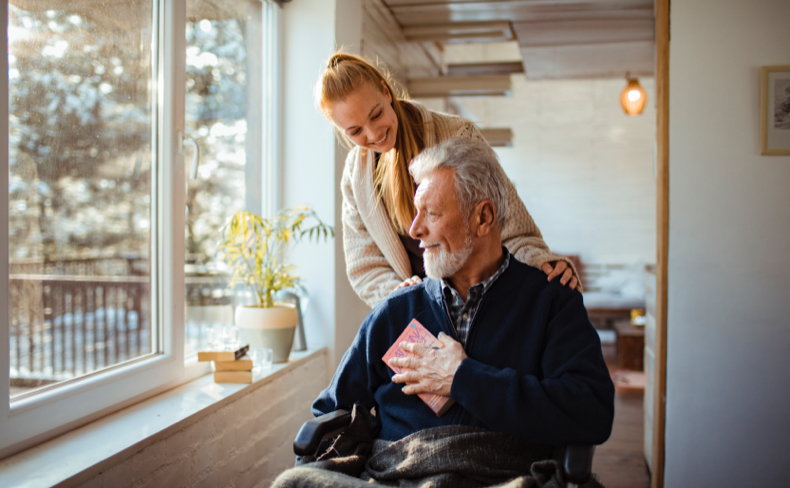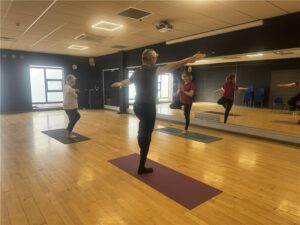Mental health is slowly becoming more talked about, with more people becoming comfortable talking about it. However, there is still a long way to go until it becomes completely normal – lots of people are still nervous of admitting mental illness and feel embarrassed in a way that they wouldn’t about a physical illness.
The first step to make something feel normal is to raise awareness, which is what Mental Health Awareness week aims to do. And with this year’s focus on Anxiety, it’s a great time to look at effective ways to deal with it, either in yourself or your loved ones.
What is anxiety and what are anxiety symptoms?
Anxiety is a mental health condition that affects many people in a variety of ways. It can present as an uncomfortable feeling of nervousness, concern or lack of control over situations in their life. Often the cause is obvious – something is going wrong or you are preparing for an important moment such as an exam or job interview. This is a perfectly normal part of everyday life, and afterwards, the anxiety and uneasiness will go.
Some people however will sometimes find it hard to control this anxiety. The feelings carry on, and as soon as one cause for worry is over, another takes its place. People who suffer from this are rarely able to relax and are on edge and anxious a lot of the time. We know as carers how challenging and complex this can be for individuals and their loved ones.
Symptoms vary from person to person but commonly include:
- A feeling of constant worry, nervousness and uneasiness
- A restlessness meaning they’re unable to settle down and relax
- Sleeplessness
- Having trouble concentrating
- Sometimes people have physical symptoms too, including heart palpitations and dizziness.
Anxiety in the elderly
In the care industry we often see that as people get older, anxiety increases and previously hidden symptoms can express themselves. For example, loneliness can increase anxiety, and we know that many people become lonelier as they get older, friends disappear and they become less able to get out and about. Money and health worries can also push the usual day-to-day anxieties we all have into mental ill-health and feelings of constant worry and concern.
Other factors such as dementia can also mean that people aren’t able to use their old coping mechanisms any more, making them extremely anxious. It’s often made worse by the loss of control that may happen, as you have to rely more and more on others to care for you and to make decisions for you.
How can you reduce anxiety?
One of the main ways to reduce anxiety or build coping mechanisms, is to know the specific cause of your anxiety. Of course, lots of causes are uncontrollable but at least knowing that there is a cause can help to control these negative feelings, and you can work on dealing with the issue at the root cause.
Other steps you can take:
Do:
- Talk to someone about what you are feeling. It does take courage to open up about how you are feeling, but the act of sharing has been proven to help a lot of people. Something all our carers do especially well is listen to our clients, and we can always see the positive effect this has on their wellbeing.
- Breathing exercises. These can really take the edge off extreme distress, fear or panic. One of these is the 4, 7, 8 breathing technique – you breathe in through your nose for a count of four; hold your breath for a count of seven and breathe out through your mouth for a count of eight. Repeat until you feel calmer.
- Exercise. Almost everyone can do some kind of exercise, whether it is walking, running, doing yoga or going to the gym. Many of our clients have limited mobility but there are almost always modified versions of the exercises that our carers can help them with. Exercise helps take the mind off anxious thoughts, is fun and helps keep your body healthy.
- Make sure you have a healthy diet, with regular nutritious meals. Everyone’s mood is influenced by hunger; it is much easier to be positive when you’ve eaten a good, healthy meal!
- Get sufficient sleep.If you are finding that you have sleepless nights this can be both a symptom and a cause of anxiety; without sleep our brains can’t function properly and are unable to control worries and fears.
Don’t:
- Feel you are alone and that nobody understands. Lots and lots of people will have gone through, and are going through, what you are. As mentioned earlier, mental illness is an invisible disease, and people hide it, so you don’t know what others are suffering. Almost everyone will have experienced fear and anxiety at some time.
- Try to avoid situations that make you anxious. It limits your life and feeds your worries. A better option is to slowly acclimatise yourself to the circumstances you’re worried or anxious about. This will help you to gradually get used to these circumstances, and will in time help to reduce the anxiety.
- Focus on things that are impossible to improve or change. Try instead to focus on the things you can make a difference to. It can be hard, especially if you are worried about something you can’t change, but as with everything, if you can shift your focus to something you can change just once, it will make that small thing that much better.
- Be too ambitious. We know the journey to reducing the feelings of anxiousness, panic and worry is a long and often frustrating one. But by taking it one step at a time, with lots of small victories on the way, when you look back your sense of achievement and purpose will only grow.
How to help someone with anxiety
We regularly help many of our clients with anxiety, and the advice we give our carers is they should be kind, don’t judge, let the person know it will pass, and reassure them that they are there for them throughout.
It is extremely tempting to use logic, to explain to someone it is not rational to be so frightened or panicked by whatever is causing the anxiety. However, this doesn’t help, the person who suffers from anxiety doesn’t want to suffer, they are unhappy and in distress and already know it is irrational.
Instead you can help by:
- Learning about anxiety. There are plenty of resources online, including mind.org.uk/information-support/types-of-mental-health-problems/anxiety-and-panic-attacks/for-friends-and-family and nhs.uk/mental-health/feelings-symptoms-behaviours/feelings-and-symptoms/anxiety-fear-panic, though it’s important to only follow advice from reputable sources such as healthcare providers, MIND or the NHS.
- Ask them questions about what they are going through. By understanding more you’re more able to give the person help they actually want and need, not what you think they do.
- Ask them what you can do to help. The person with anxiety knows better than anybody what help they want and need.
- Give them the support they need to get help. Finding and going to a professional can be difficult for someone suffering with anxiety for a number of reasons, so your help might be just what they need to take this important step.
- Look after yourself. It’s not always easy to put yourself first when you’re trying to help someone, but if you become exhausted or burned out by looking after someone who has serious problems, you won’t be able to do any good for them. It’s why we offer a respite care service, to give relatives the break they need to be able to recharge and continue caring effectively.
Useful resources to help with anxiety
As mentioned above, there are many resources to help with anxiety. We list some of the ones we find most effective below:
Information on anxiety: nhs.uk/mental-health/feelings-symptoms-behaviours/feelings-and-symptoms/anxiety-fear-panic
Audio guides support from the NHS: nhs.uk/mental-health/self-help/guides-tools-and-activities/mental-wellbeing-audio-guides
9 free apps to help cope with anxiety: calvertexmoor.org.uk/news/free-anxiety-apps
Your free NHS mind plan: nhs.uk/every-mind-matters/mental-wellbeing-tips/your-mind-plan-quiz
Mind’s Side by Side online community: sidebyside.mind.org.uk
The Royal College of Psychiatrists advice on sleeping well: rcpsych.ac.uk/mental-health/problems-disorders/sleeping-well





